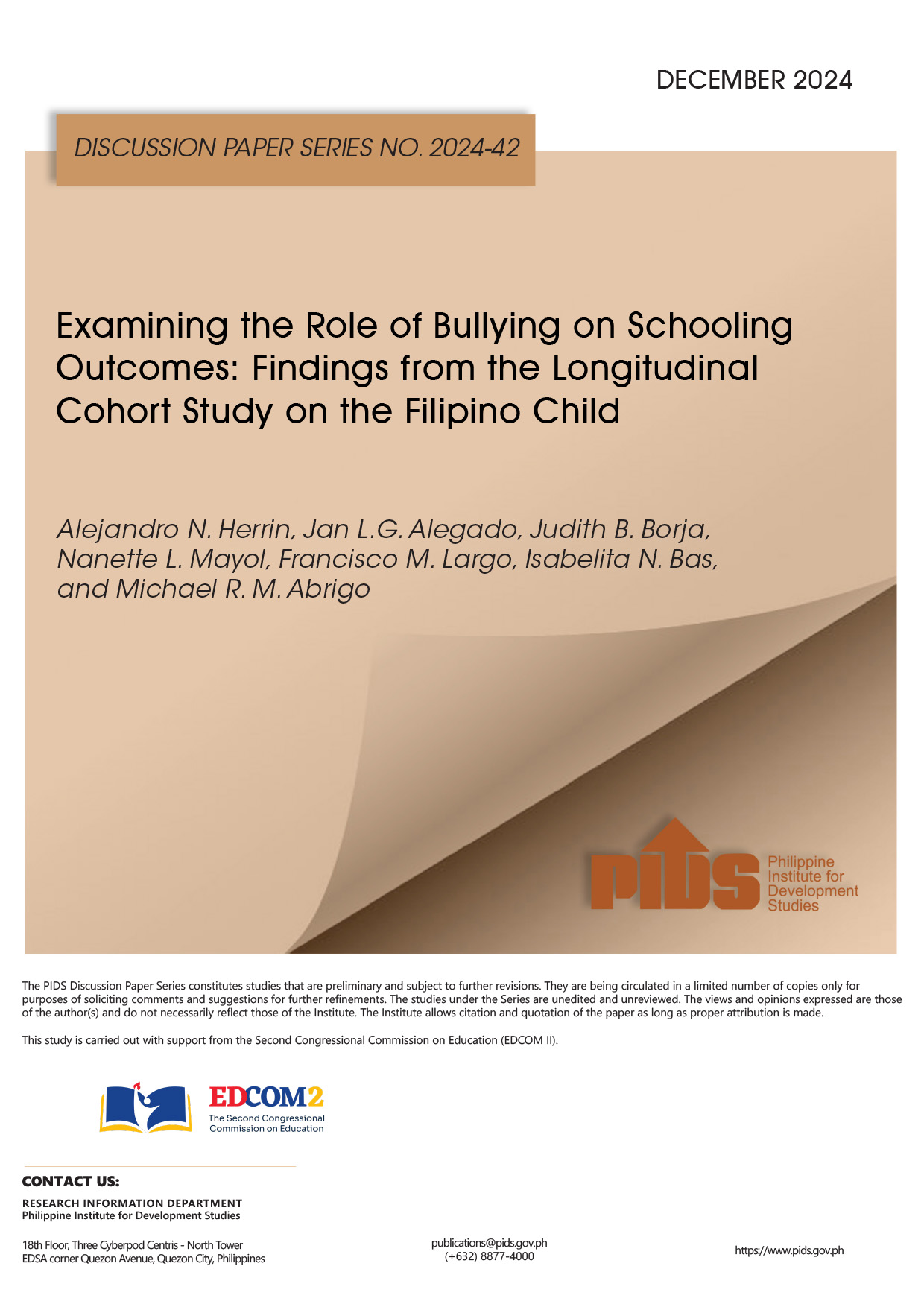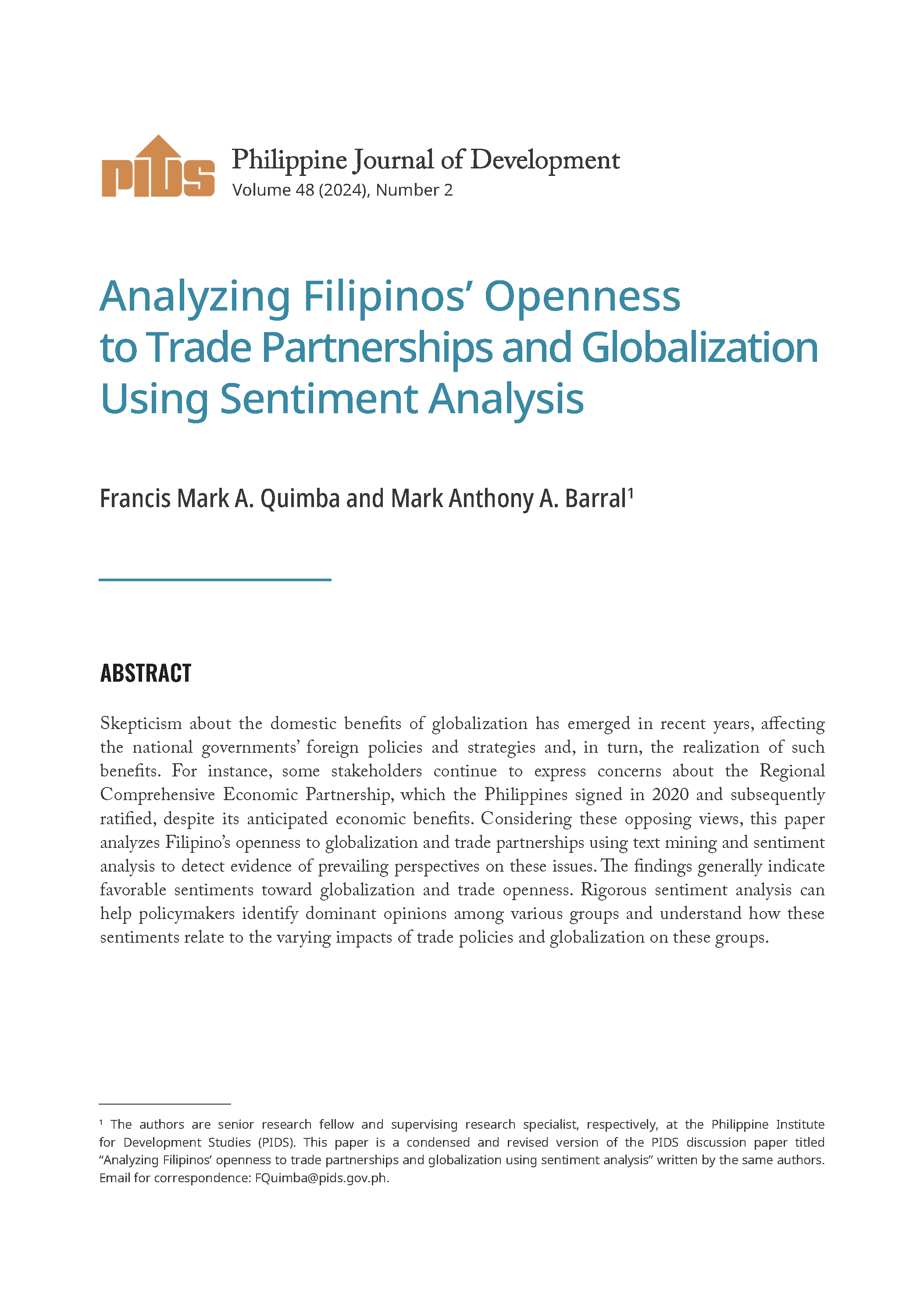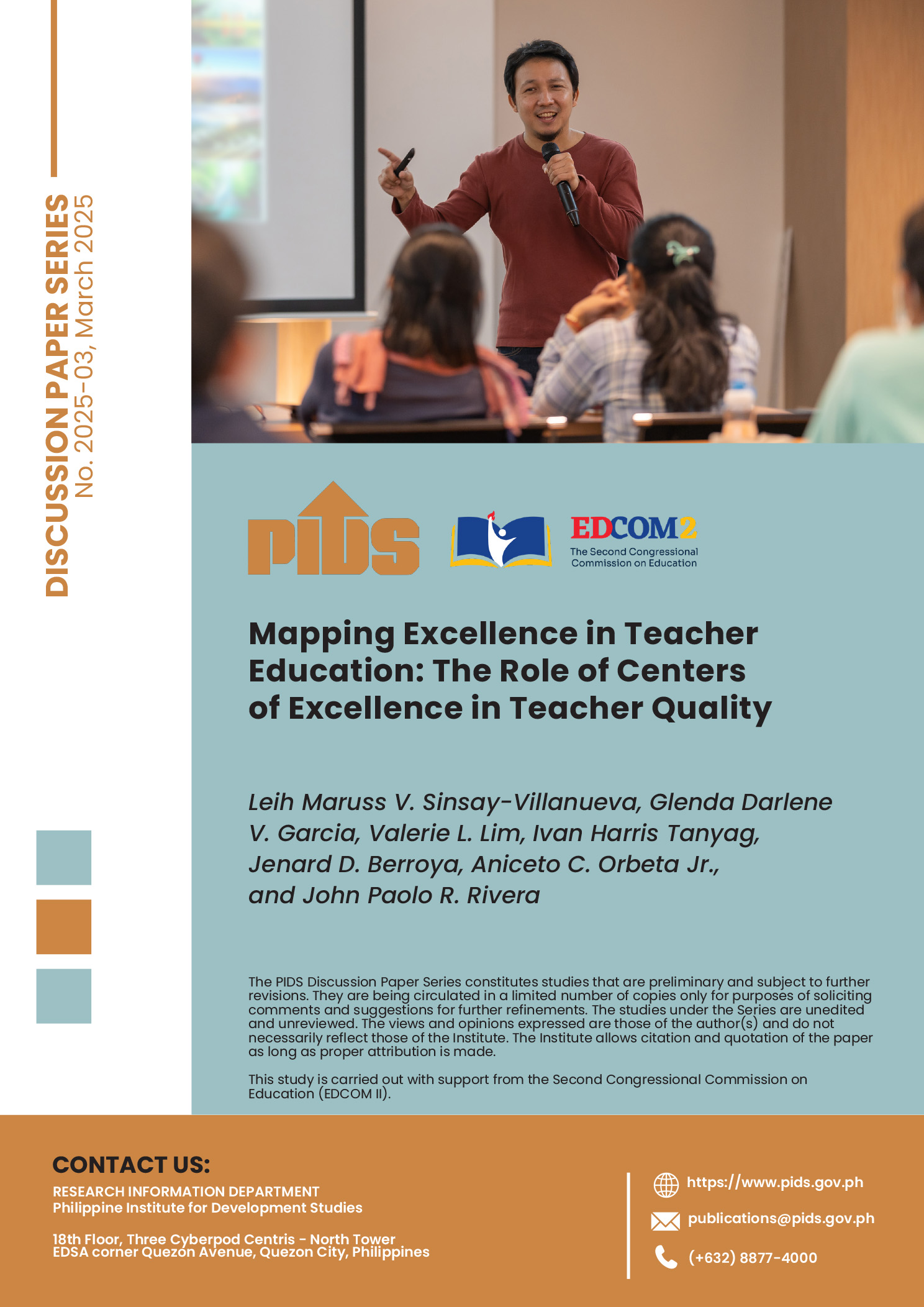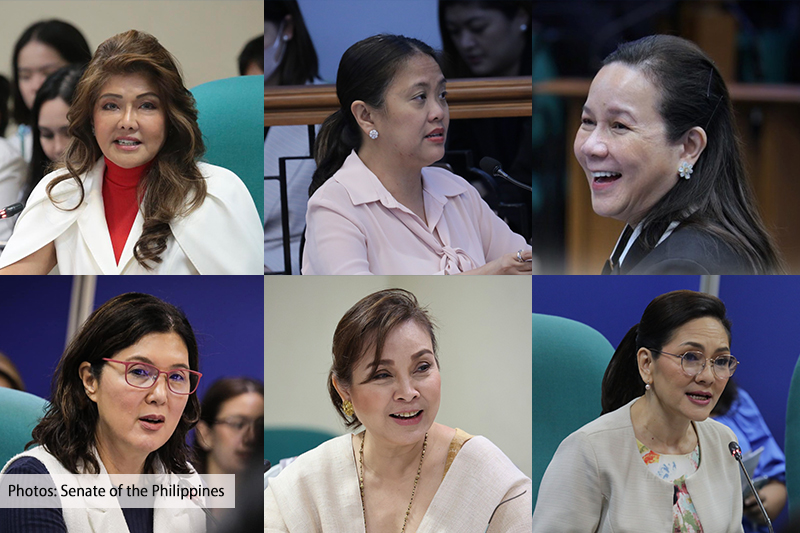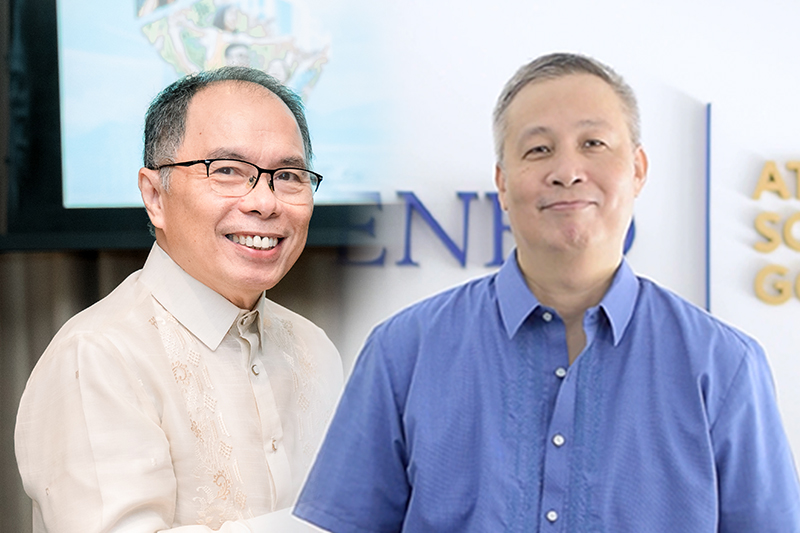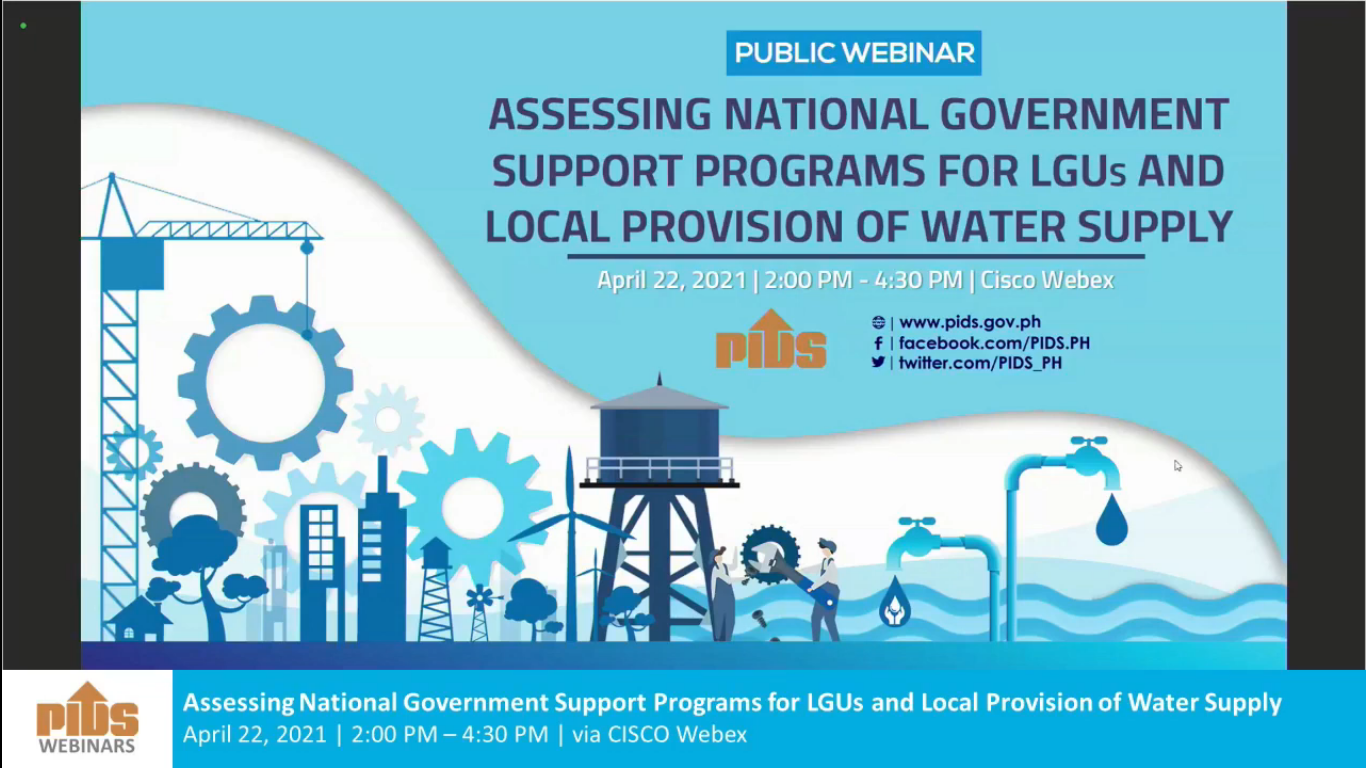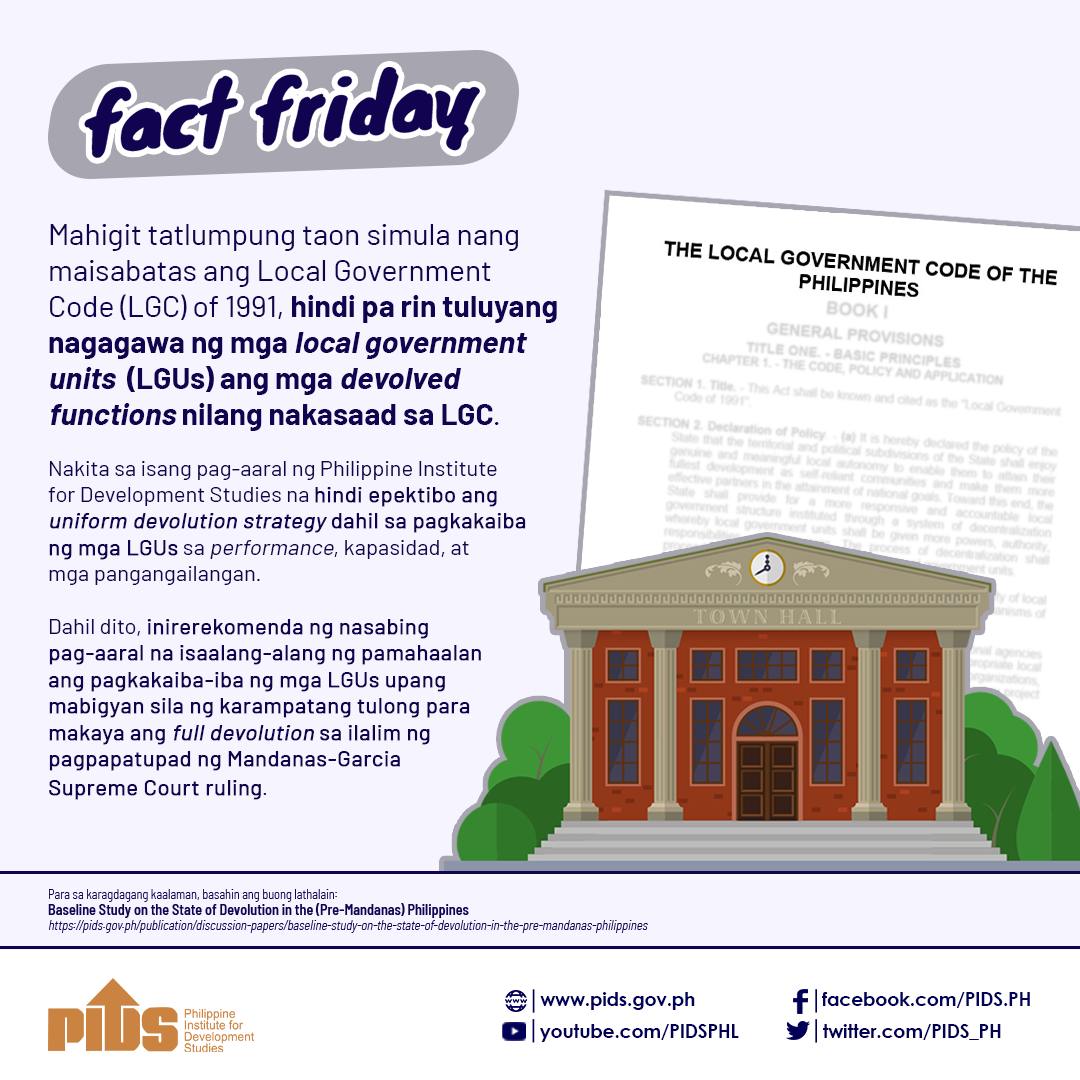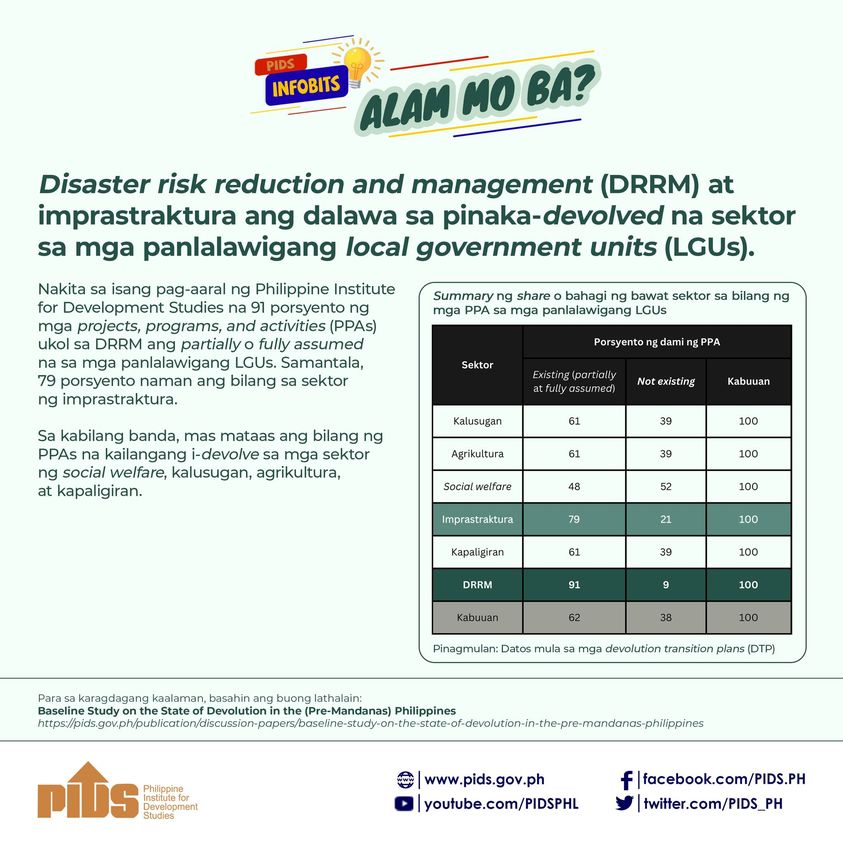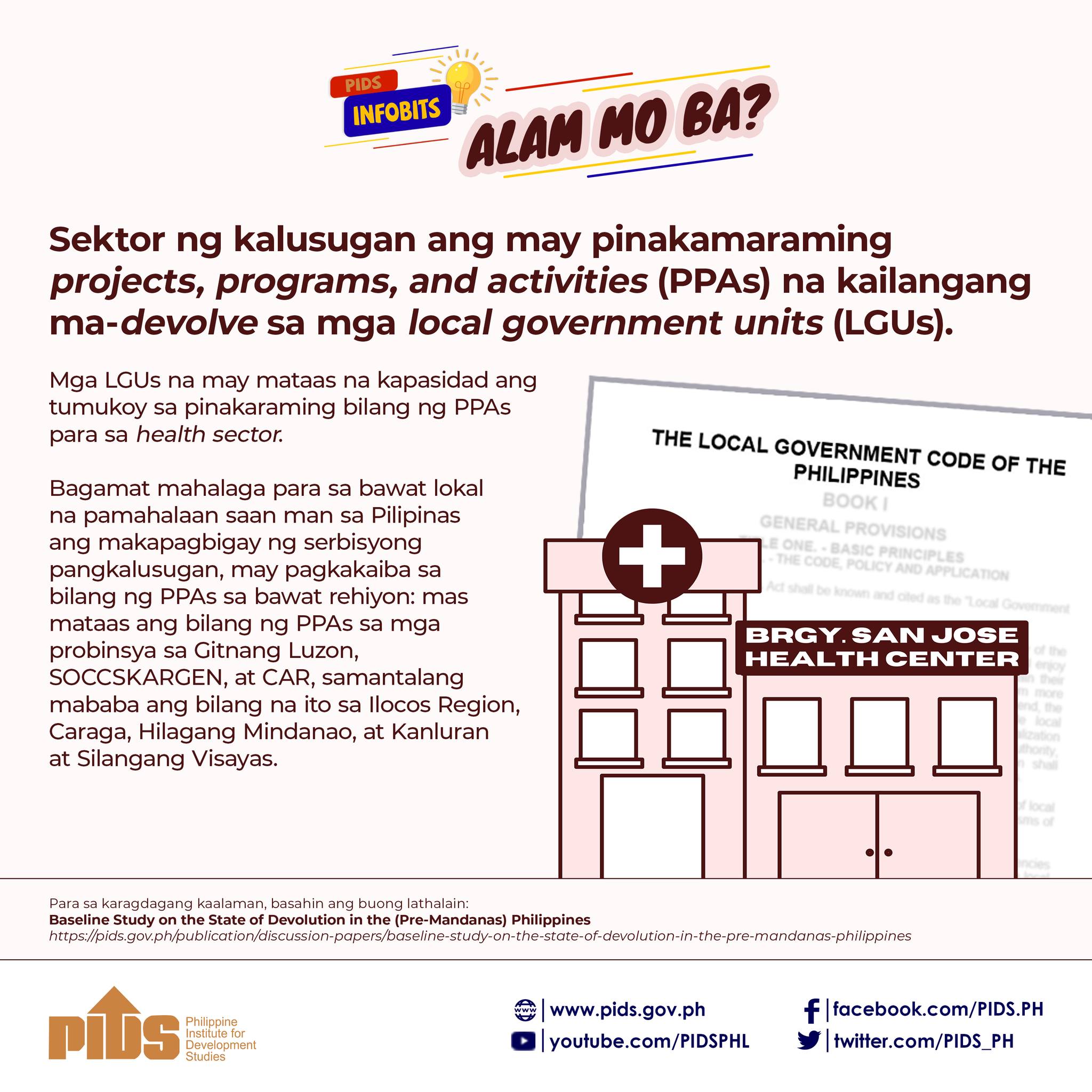An official of the Department of Interior and Local Government (DILG) stressed that the local government units (LGUs) play a major role in responding to the challenges of the new globalization, like achieving the country’s Sustainable Development Goal (SDG) Targets.
DILG Undersecretary Marivel Sacendoncillo made this assertion in the recent kick-off press conference of the Development Policy Research Month organized by the Philippine Institute for Development Studies.
“Their (LGUs) role in delivering basic services, creating vibrant local economies, developing resilient communities, maintaining peace and security in their localities, and improving the quality of lives of their constituencies are only possible if good local governance prevails,” Sacendoncillo said.
Sacendoncillo noted good local governance can be accomplished by ensuring that LGUs’ capacities are enhanced in the following pillars: presence of appropriate structure with defined authority and accountability to perform necessary tasks; competency of staff in their assigned functions and programs; management systems, including systems and processes, for managing local government programs; presence of policy and legislative support for managing programs and projects; use of data for decision making and continuous improvement; and leadership.
She also said LGUs face a number of challenges that hinder them from achieving good local governance, one of which is incomplete devolution.
“The Local Government Code of 1991 should have been amended after five years, as the law provided, but it was never subjected to these amendments. May mga papichi-pichi lang na amendments (there are minor amendments) but it was not really an omnibus amendment. So the devolution, until now after 28 years, is not completed,” Sacendoncillo explained.
She added that at present, there are still a number of basic services that “are done directly by the national agencies” and “not given to local governments”.
One of these is the “control of resources”.
The DILG officials then stressed the need to “provide an environment for LGUs to take local actions and maximize results.”
Furthermore, Sacendoncillo highlighted the government’s tendency to “operate in silos—both attitudinal and behavioral”, describing it as “the most difficult to deal with”.
“How can the local governments address, for example, the SDGs on the ground if the agencies of the bureaucracy at the national level are working independently of each other—working at different targets, prioritizing different areas, and implementing duplicating programs?” she asked.
She also mentioned weak accountability mechanisms and deep-seated corruption as challenges to attaining good local governance among LGUs.
Sacendoncillo also expressed concern in the supposed apathy among the public and stressed that “every citizen of the country must not only demand rights, but (must also) take responsibilities.”
However, she noted this could be attributed to poor governance, as “people become apathetic because they do not see results.”
Emphasizing the need for trust within and outside the government, Sacendoncillo said this could translate to good local governance and enhanced participation of the local communities.
“Good governance provides spaces for people to participate—in defining what development means, in planning for how they will attain it, and perhaps even in implementing and evaluating whether what they did led to positive impacts in their lives,” she explained.
By allowing local communities to participate, it ensures that “programs offered by the local governments are responsive and really reflect what the people desire,” Sacendoncillo added.
The Development Policy Research Month is an annual celebration to promote nationwide awareness of the importance of policy research in crafting evidence-based policies, plans, and programs.

